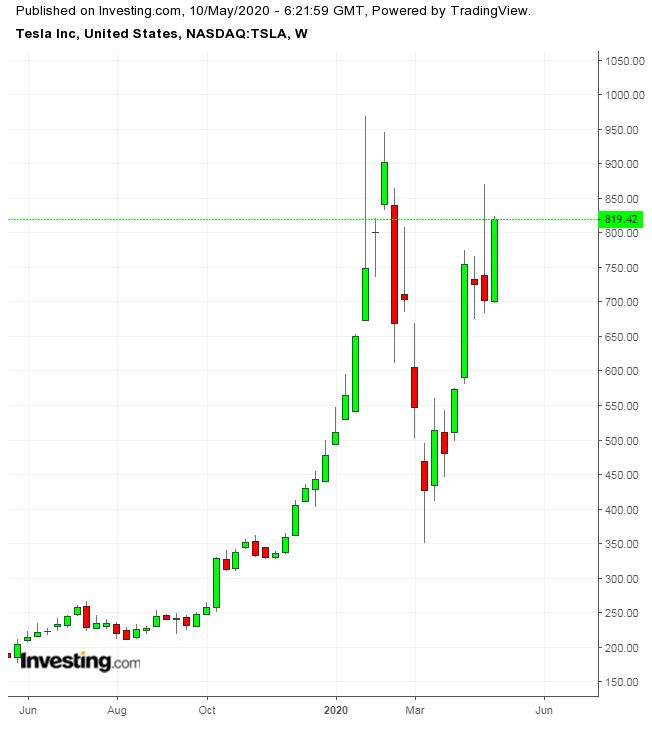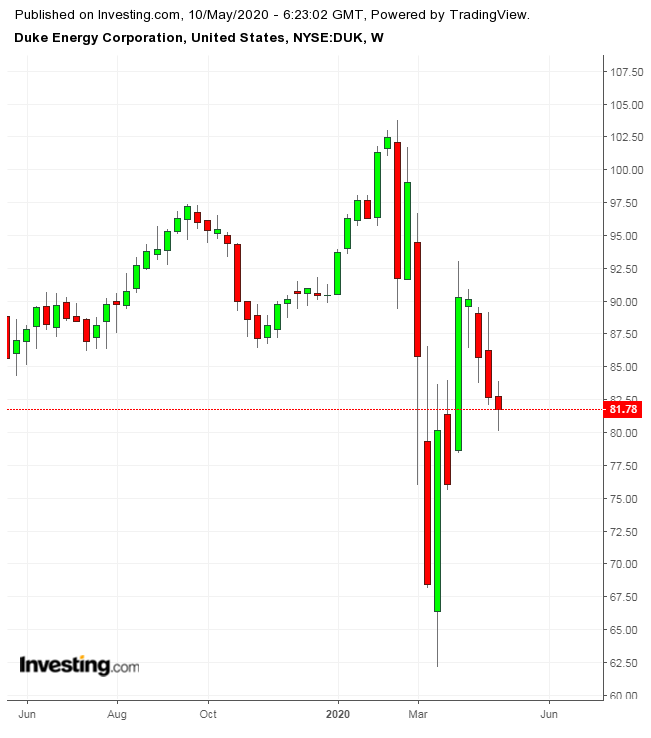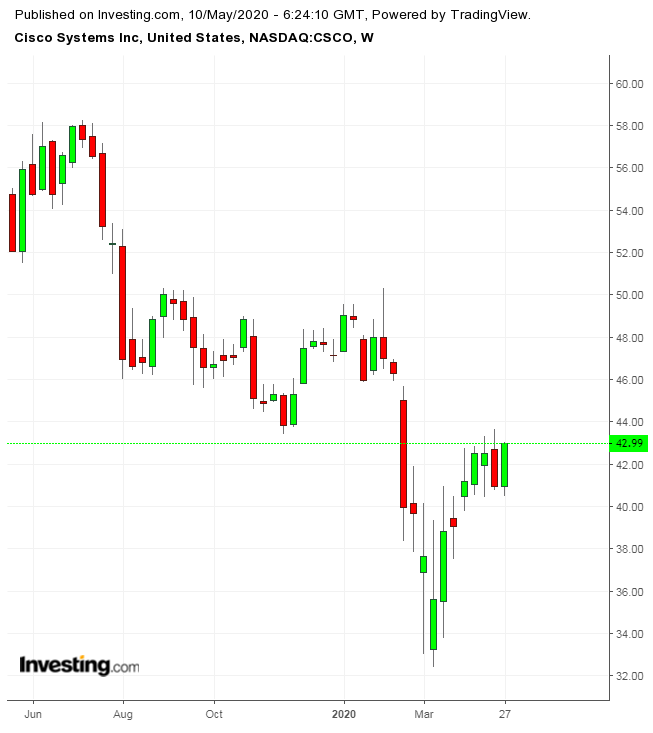Stock investors pinned their hopes on the US reopening and a quick recovery once the coronavirus pandemic is contained, driving US markets higher during last week's trade, ignoring bad economic data over the same period, and a gloomy earnings outlook from corporate America.
The government reported on Friday that employers cut an unprecedented 20.5 million jobs in April, tripling the unemployment rate to 14.7%, the highest since the era of the Great Depression during the 1930s.
Despite this devastating toll on the economy, the NASDAQ jumped 6% in a week, wiping out its losses for the year. The small cap Russell 2000 was up 5.5%, while the S&P 500 gained 3.5% for the week. Since the March low, the benchmark index has gained more than 30%, retracing more than half its COVID-19-related losses. Indeed, April was the best month for stocks in more than three decades.
In the coming week, we'll still see a few big names from different sectors of the economy reporting their first quarter numbers. Here are three we're watching:
1. Tesla
Tesla (NASDAQ:TSLA) CEO Elon Musk continues to make headlines via his Twitter feed, keeping investors in the electric carmaker on edge about what’s coming next.

The latest tweet came on Saturday when he escalated his fight with California over the state’s lockdown measures which have closed Tesla's Fremont factory. Musk used the social media platform—as well as a blog post—to reveal that the company is preparing to file a lawsuit against Alameda County and threatened to move its headquarters and future operations out of California.
Hours later the Palo Alto, California-based company filed a complaint with the US District Court in San Francisco, claiming the county’s health order “puts businesses deemed critical to the nation’s well-being by the federal and state governments between a rock and a hard place.”
Musk, who has called coronavirus-related shutdown orders fascist, said Tesla will decide whether to keep producing cars in Fremont, California, based on how it’s treated going forward.
Tesla shares, which closed on Friday at $819.42, have surged more than 95% this year on better-than-expected earnings and car production. A prolonged closure of plants would make it harder for the company to meet its car sales target. Before the pandemic, Tesla was projecting a 36% increase in its car output this year.
2. Duke Energy
Charlotte, N.C.-based Duke Energy (NYSE:DUK) will report Q1 2020 earnings on Tuesday, May 12 before the market opens. Analysts, on average, expect the utility to make $1.19 a share profit on sales of $6.34 billion.

Shares of Duke have fallen about 10% this year, in line with the general market trend. They closed on Friday at $81.78 after gaining 1.83%.
Utility stocks are generally more stable, since consumers continue to need gas and electricity even through the worst economic contractions. In addition, these companies offer investors higher dividends and reliable revenue generation.
Duke currently pays $0.945 a share quarterly dividend which translates into a 4.62% annual yield. The company has a $37 billion development plan in place, set to run until 2022. Among other things, it's a way of supporting the company’s inflation-beating dividend growth. Through its diversified power, gas and storage businesses, Duke plans to deliver between 4% and 6% annual dividend growth going forward.
3. Cisco Systems
Cisco Systems (NASDAQ:CSCO) will report its fiscal 2020, third-quarter earnings on Wednesday, May 13, after the market closes. The San Jose-based networking giant will likely report $0.71 a share profit on sales of $11.91 billion, according to analysts’ consensus forecast.

Under Chief Executive Officer Chuck Robbins, Cisco has made a string of acquisitions in order to build a software and services business. Last year, Cisco bought closely held Voicea, a maker of software that provides real-time transcription and voice search capabilities.
In July, it agreed to acquire Acacia Communications (NASDAQ:ACIA) for about $2.6 billion, gaining chips and machines that help translate optical signals into electronic data.
These growth initiatives, coupled with the company’s dominant position in the Americas region—where it generates the majority of its sales—could help the Cisco beat expectations. Its shares, which closed on Friday at $42.99, have fallen 10% this year.
